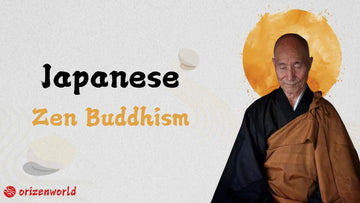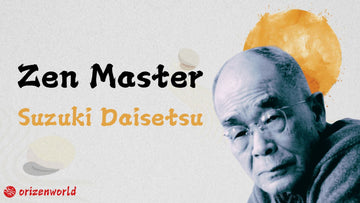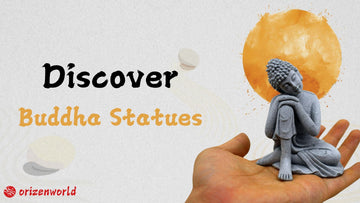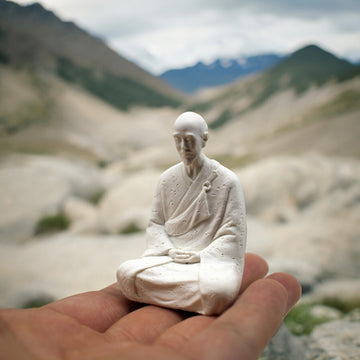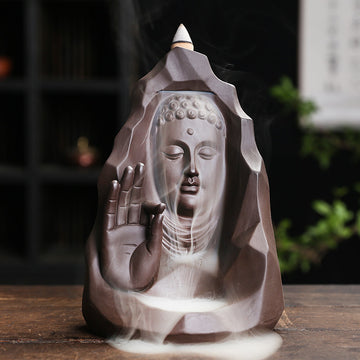Zen Buddhism is a widely embraced philosophy across the globe, valued for its emphasis on mindfulness and inner peace. Many celebrities turn to Zen practices to gain clarity and enhance their quality of life.
However, defining Zen Buddhism can be challenging as it lacks a rigid explanatory framework. Instead, it offers a fluid, experiential path to understanding life’s truths, helping individuals transcend worldly disturbances.
In essence, Zen is not just a belief system but a way of living—a practice that encourages simplicity, awareness, and direct experience.
In this article, we’ll explore the profound aspects of Zen Buddhism, shedding light on this enigmatic and transformative oriental philosophy. Whether you’re new to Zen or seeking deeper insights, this journey may inspire your perspective on life.
Zen Buddhism traces its historical roots to Indian Buddhism, where the teachings of Siddhartha Gautama, the Buddha, laid the foundation. Central to these teachings was the practice of meditation, or "dhyana," which emphasized direct experience over theoretical understanding. This meditative focus later evolved as Buddhism spread across Asia, incorporating local traditions and philosophies.
Mahayana Buddhism played a crucial role in shaping Zen, emphasizing universal enlightenment and the Bodhisattva ideal. The legendary figure Bodhidharma, an Indian monk, is credited with introducing Zen (known as Chan in Chinese) to China in the 6th century. Bodhidharma’s emphasis on meditation and direct insight resonated deeply, forming the basis of the Chan tradition.
In China, Chan Buddhism flourished as a unique synthesis of Mahayana Buddhist principles and Taoist philosophy. This integration resulted in a practice deeply rooted in simplicity and harmony with nature. Chan masters developed innovative techniques, such as koans and mindfulness in daily tasks, to guide students toward enlightenment.
When Chan Buddhism transitioned to Japan, it evolved into Zen Buddhism, adapting to the Japanese cultural context. Zen thrived, influencing art, tea ceremonies, and martial arts, and becoming a cornerstone of Japanese spirituality. In the 20th century, Zen found its way to the West, largely thanks to D.T. Suzuki. Regarded as the father of modern Zen in the West, Suzuki’s writings and lectures popularized Zen globally.
Zen Buddhism’s journey from India to Japan and beyond highlights its adaptability and enduring appeal. Its focus on experiential wisdom continues to inspire people across cultures, offering profound insights into the nature of life.
At the heart of Zen Buddhism lies the emphasis on direct experience and self-realisation. Unlike other philosophical or religious traditions that rely heavily on scripture and dogma, Zen encourages practitioners to uncover the truth through personal practice and insight. This focus on experience over theoretical understanding highlights Zen’s commitment to living in the present moment.
A fundamental concept in Zen is "no-mind," or Mushin, which represents a state of mental clarity free from attachment and distraction. Practitioners aim to achieve this by letting go of preconceived notions, desires, and fears, allowing their minds to flow naturally and intuitively. Detachment from worldly concerns is seen as essential for attaining a state of pure awareness and harmony.
Zen also teaches the interconnectedness of all things and the impermanence of life. This principle reminds practitioners that nothing exists in isolation and that all phenomena are transient. Understanding this interconnectedness fosters compassion, humility, and a deep appreciation for the present moment, as everything is seen as part of a greater whole.
Another hallmark of Zen is its rejection of rigid dogmatic teachings. Zen masters often rely on intuition to guide students toward enlightenment, sometimes in unconventional ways. For instance, if a student asks, "What is Zen?" a master might respond with silence or assign a seemingly unrelated task. This approach aims to challenge intellectual reasoning and provoke deeper self-reflection.
Ultimately, Zen Buddhism’s core philosophy revolves around simplicity, mindfulness, and authenticity. By stripping away distractions and relying on intuition, Zen offers a profound path to self-realisation and a deeper understanding of the nature of existence.
Zen Buddhism is rooted in practices that cultivate mindfulness, self-awareness, and spiritual growth. Among these, meditation serves as the cornerstone of Zen practice. Zazen, or seated meditation, is the most recognised form, where practitioners sit in a specific posture, focus on their breath, and observe their thoughts without judgment. Breath counting, often used in early stages, helps to steady the mind, while advanced practitioners may engage in Shikantaza, or "just sitting," a form of meditation that involves complete presence without any specific focus or goal.
Another central practice in Zen is the use of koans, enigmatic questions or statements posed by a Zen master to challenge a student's conceptual thinking. Koans are designed to bypass logical reasoning, prompting insight into deeper truths. For example, a student might be asked, "What is the sound of one hand clapping?" Such questions often appear paradoxical but serve to dismantle intellectual habits, leading to spiritual breakthroughs.
The Zen tradition also places a strong emphasis on arts such as poetry, painting, and calligraphy. These creative disciplines are not merely artistic pursuits but spiritual practices that embody Zen principles. Through mindful creation, artists express simplicity, harmony, and the interconnectedness of nature and humanity. Each stroke or verse reflects the meditative state of the practitioner, blending art and spirituality seamlessly.
Mindfulness extends beyond meditation and art into daily life in Zen practice. Practitioners are encouraged to be fully present in every action, whether eating, walking, or engaging in work. This emphasis on mindfulness transforms ordinary activities into opportunities for spiritual growth, fostering a deep connection with the present moment.
The interplay of meditation, koans, and arts creates a holistic approach to spiritual development in Zen Buddhism. Each practice reinforces the other, offering multiple paths to self-realisation and enlightenment.
By integrating these key practices, Zen Buddhism provides a practical and profound framework for navigating life’s challenges with clarity, mindfulness, and authenticity. This balanced approach to spiritual growth resonates with modern seekers, offering timeless wisdom for contemporary living.
Zen Buddhism owes much of its rich tradition and global influence to the contributions of renowned masters and teachers throughout history.
Bodhidharma, the Indian monk credited with bringing Zen (Chan) Buddhism to China in the 5th or 6th century, is often regarded as the founding figure of the Zen tradition. His teachings emphasised meditation and direct experience over doctrinal study, laying the groundwork for Zen's enduring focus on self-realisation.
Hui Neng, the Sixth Patriarch of Chinese Chan Buddhism, later reinforced these principles. Hui Neng’s doctrine of sudden enlightenment highlighted the innate potential for awakening within every individual, shaping the spiritual foundation of Zen.
Among Chinese Zen masters, Hong Yi stands out as a modern figure who bridged traditional practices with contemporary life. Originally a celebrated artist and musician, Hong Yi turned to monastic life and became an influential teacher. His teachings combined Zen’s timeless principles with a deep appreciation for art and aesthetics, inspiring followers to see spirituality in all aspects of life.
Thich Nhat Hanh, a Vietnamese monk, brought Zen Buddhism into the modern era with his teachings on engaged Buddhism. Advocating mindfulness in daily life, he offered simple yet profound practices for cultivating peace and compassion. His global reach, especially in the West, popularised Zen as a tool for social and personal transformation.
In the 20th century, D.T. Suzuki emerged as a pivotal figure in introducing Zen Buddhism to the West. His writings and lectures offered insights into Zen's philosophy and practice, sparking widespread interest and understanding. Suzuki’s efforts laid the foundation for Zen's influence on Western spirituality, art, and psychology, making it accessible to a global audience.
Through their unique contributions, these Zen masters and teachers have shaped Zen Buddhism into a philosophy and practice that transcends cultural and temporal boundaries, resonating with seekers worldwide.
The aesthetics of Zen Buddhism reflect its core principles, embracing simplicity, natural elements, and the beauty of imperfection. This minimalist philosophy has influenced countless aspects of art and design. For example, Steve Jobs drew inspiration from Zen aesthetics, which guided the sleek, minimal design of Apple products. Zen’s emphasis on stripping away the unnecessary resonates with modern minimalism, creating a timeless appeal.
Traditional Japanese arts such as ikebana (flower arranging), the tea ceremony, and Zen gardens are deeply rooted in Zen philosophy. Each practice exemplifies mindfulness and simplicity, focusing on natural elements and harmonious balance. A Zen garden, with its raked sand, carefully placed rocks, and sparse vegetation, symbolises the serenity and impermanence of nature. Similarly, the tea ceremony transforms a simple act of drinking tea into a meditative, deliberate ritual.
Central to Zen aesthetics is the concept of Wabi-Sabi, which celebrates imperfection, impermanence, and the incomplete. This philosophy finds beauty in weathered objects, asymmetry, and muted tones, reflecting the transient nature of existence. Wabi-Sabi’s humble yet profound aesthetic is evident in handmade pottery, aged wood, and the natural erosion of stone.
Zen aesthetics have left a lasting impact on global art and design, influencing everything from architecture to digital design. This unique perspective encourages individuals to find beauty in simplicity, embrace imperfection, and connect with the natural world, offering a refreshing alternative to modern materialism.
Zen Buddhism has had a profound influence on contemporary art, design, and architecture. Many architects and designers incorporate Zen aesthetics into residential and hospitality spaces, creating tranquil environments characterised by minimalism and natural harmony. This style has garnered widespread appeal for its ability to foster calmness and balance in modern living spaces, often serving as a sanctuary from the chaos of daily life.
In Western mindfulness practices and stress management techniques, Zen philosophy plays a prominent role. Meditation and mindfulness courses frequently draw upon Zen principles, teaching individuals to live in the moment and manage stress through awareness and acceptance. These practices have proven effective in improving mental well-being, making Zen a valuable tool for navigating the challenges of modern life.
The spread of Zen teachings beyond Asia has led to its recognition and adaptation worldwide. In the West, Zen masters like D.T. Suzuki and Thich Nhat Hanh have popularised Zen, presenting its timeless wisdom in ways accessible to global audiences. As a result, Zen has been embraced across cultures, with individuals finding relevance in its teachings regardless of their backgrounds.
Zen also plays a growing role in modern technology, workplaces, and daily life. In an age of material abundance, many people face spiritual emptiness, anxiety, and attention deficits. Zen offers guiding principles for achieving inner peace, improving focus, and fostering emotional resilience. Techniques like mindful breathing and meditation have become popular workplace practices to enhance productivity and reduce stress.
Ultimately, Zen Buddhism provides a timeless philosophy that continues to evolve with modern society. By addressing both spiritual and practical needs, it helps individuals find balance and clarity in an increasingly complex and fast-paced world.
As mentioned earlier, Zen Buddhism is a method for achieving inner peace, especially in today’s fast-paced, stressful world. Let me now explain some of the key benefits you can experience by practicing Zen, from mental clarity and stress reduction to enhanced creativity and emotional resilience.
By practicing mindfulness and meditation, such as Zazen, practitioners can sharpen their concentration and reduce the mental clutter that leads to stress and anxiety. Personally, I’ve found that using Zen mindfulness helps me stay focused when working, allowing me to avoid distractions and complete tasks more efficiently.
Another benefit is the enhancement of creativity and emotional resilience. Zen practices encourage a deep connection with the present moment, which can unlock new insights and innovative ideas.
It also helps individuals develop emotional strength, enabling them to navigate life’s challenges with greater ease and grace. For example, through regular meditation, I’ve been able to cultivate a more balanced emotional state, which has positively impacted both my personal and professional life.
Zen Buddhism also supports the development of inner peace and self-awareness. By regularly reflecting through meditation, practitioners can gain a deeper understanding of themselves, which promotes tranquility and a sense of fulfillment. I personally created a Zen room in my home with Zen statues, where I retreat to when feeling stressed or anxious, helping me restore inner calm.
Finally, Zen fosters the cultivation of compassion and harmonious living. Through mindfulness, practitioners learn to act with kindness and compassion towards others, creating a peaceful and balanced environment in both personal relationships and society.
Zen Buddhism offers a unique approach to mental healing, teaching us that true peace comes from understanding and accepting the challenges we face. Psychological instability is present from birth, and if we don’t acknowledge our issues as we grow, that becomes the real problem. Anyone interested in Zen or seeking to understand their mind is already on a path toward healing. Recognizing a need for help is the first step to mental health.
In Zen, admitting that we have problems and not hiding them is seen as a healthy attitude. This openness to ourselves fosters healing, as it helps us address our issues rather than avoid them. In Zen practice, it’s about facing reality, no matter how difficult, and not pretending everything is fine when it’s not.
Zen teaches a simple method for achieving peace: recognize the facts, face them, deal with them, and then let them go. No situation should be seen as catastrophic. If we know something unpleasant is about to happen, it’s best to prevent it if possible. If it cannot be avoided, worrying about it is futile. Zen encourages us to stop worrying and start acting, as worrying often makes things worse.
I often see patients diagnosed with cancer, who come to me after being told their time is limited. It can feel like they are both asking for help and saying goodbye. My advice is straightforward: don’t fear death, but don’t wait for it either. Accept the treatment, live fully, and don’t give up hope. This is the Zen approach — face life as it comes, without unnecessary fear or despair.
What is a koan in Zen Buddhism?
A koan is a paradoxical question or statement used in Zen practice to challenge rational thinking and stimulate a deeper understanding of reality. For example, a Zen master might ask, “What is the sound of one hand clapping?” Koans are meant to break the limits of ordinary reasoning and encourage direct insight.
How does Zen Buddhism differ from other forms of Buddhism?
Zen Buddhism places greater emphasis on meditation and direct experience, rather than reliance on scriptures or rituals. Unlike some forms of Buddhism, Zen stresses the importance of personal realization over intellectual study or dogmatic belief systems.
Can anyone practice Zen Buddhism?
Yes, anyone can practice Zen Buddhism. While it is deeply rooted in Buddhist traditions, Zen is accessible to people of all backgrounds and beliefs. The practice encourages self-discovery and mindfulness, which can benefit people regardless of their religious affiliations.

